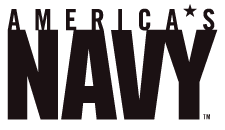Candace Childers
In Command Of Her Future
LT Candace Childers, Nuclear Officer, USN
“First day on the job, I was already a manager and a leader with the opportunity to make a difference in people’s lives. That’s a huge responsibility…very challenging and pretty scary. But you do your job right and others have a lot of respect for you.”
— LT Candace Childers, Nuclear Officer, USN
It’s one thing to have a career goal and then work toward achieving it. But when you start your quest as a middle schooler and choose to go through the world’s preeminent nuclear program to get there, it’s something entirely different. Something that describes Candace Childers, a young woman on a mission to fulfill a bold dream.
“My grandmother (a Navy veteran) got me involved in the U.S. Naval Sea Cadet Corps – which is a youth program,” she explains. “I did that from the age of 13 all the way through high school. And from the time I started, I pretty much knew that I wanted to be in the Navy and command ships.”
A lofty goal by any measure. But one that each day – with each qualification successfully completed and each degree competently earned – seems more and more attainable.
Upon graduating from the United States Naval Academy in 2005, LT Childers received her first degree, in computer science, from the Commander-in-Chief of all people. She recalls, “Getting my diploma from the President, getting commissioned from him, that was the proudest day of my life.”
From there, she’s continued to have achievements competing for this distinction. Once out of the Academy, she immediately moved on to the Naval Postgraduate School – earning an MS in computer science as a Bowman Scholarship recipient (an honor awarded to select Nuclear Officers in the top 10% of their class).
She reflects, “In graduate school, I did my thesis on something called semantic web. It was a software engineering thesis on Internet artificial intelligence. I was able to go to the Pentagon and brief the NavTech conference (which is the big Navy research conference). I also briefed the Naval Academy and had my paper published.”
From the classroom, LT Childers’ focus then shifted to the comprehensive process of becoming a Nuclear Officer. First, qualifying as Officer of the Deck and earning her Surface Warfare qualification on a conventionally-powered ship. Then taking on the challenging requirements of the nuclear training pipeline before completing her Navy Nuclear Engineer Qualification aboard the nuclear-powered aircraft carrier USS Abraham Lincoln (CVN-72) in March 2011.
She describes the job like this: “If you want to take something that’s already built, operate it, really push it to its limits and really see what it can do…if you want to fix it when it breaks and really know how take care of it…if you want to be out there turning valves and pushing buttons and watching things happen while leading people at the same time…then this is definitely the right job for you.”
She adds, “My experience in the Navy is already worth well over 10 years of experience anywhere else. No one else our age is doing what we’re doing.”
LT Childers now serves as the NROTC and Nuclear Field Enlisted Program Manager at Navy Recruiting Command and is concurrently pursuing advanced degrees two and three, a MS in engineering management at Old Dominion University along with a MS in mechanical engineering at the Naval Postgraduate School.
And, as she sets her sights on becoming a Department Head and advancing toward her ultimate goal of one day commanding her own ship, she provides a little insight into what drives her:
“I’m just not a nine-to-five, sit at a desk and do the same thing for the rest of my life kind of person.”
Thinking Outside The Box
“Our equipment…the way we operate…it’s pretty cool. But there’s also that sense of being 24 years old and in charge of a nuclear reactor that’s out to sea where a lot of things can happen and where there’s no one around if something does.
Reality is: You have to know how to deal with whatever comes up. You have to be the expert.
In a general sense, most of what we do is covered in a book somewhere. But while staying within those guidelines, you have to be able to adapt and think outside of the box. Sometimes you have to think: Maybe this has never been done before, but it just might work in this situation.”
— LT Candace Childers, Nuclear Officer, USN
 America's Navy
America's Navy
